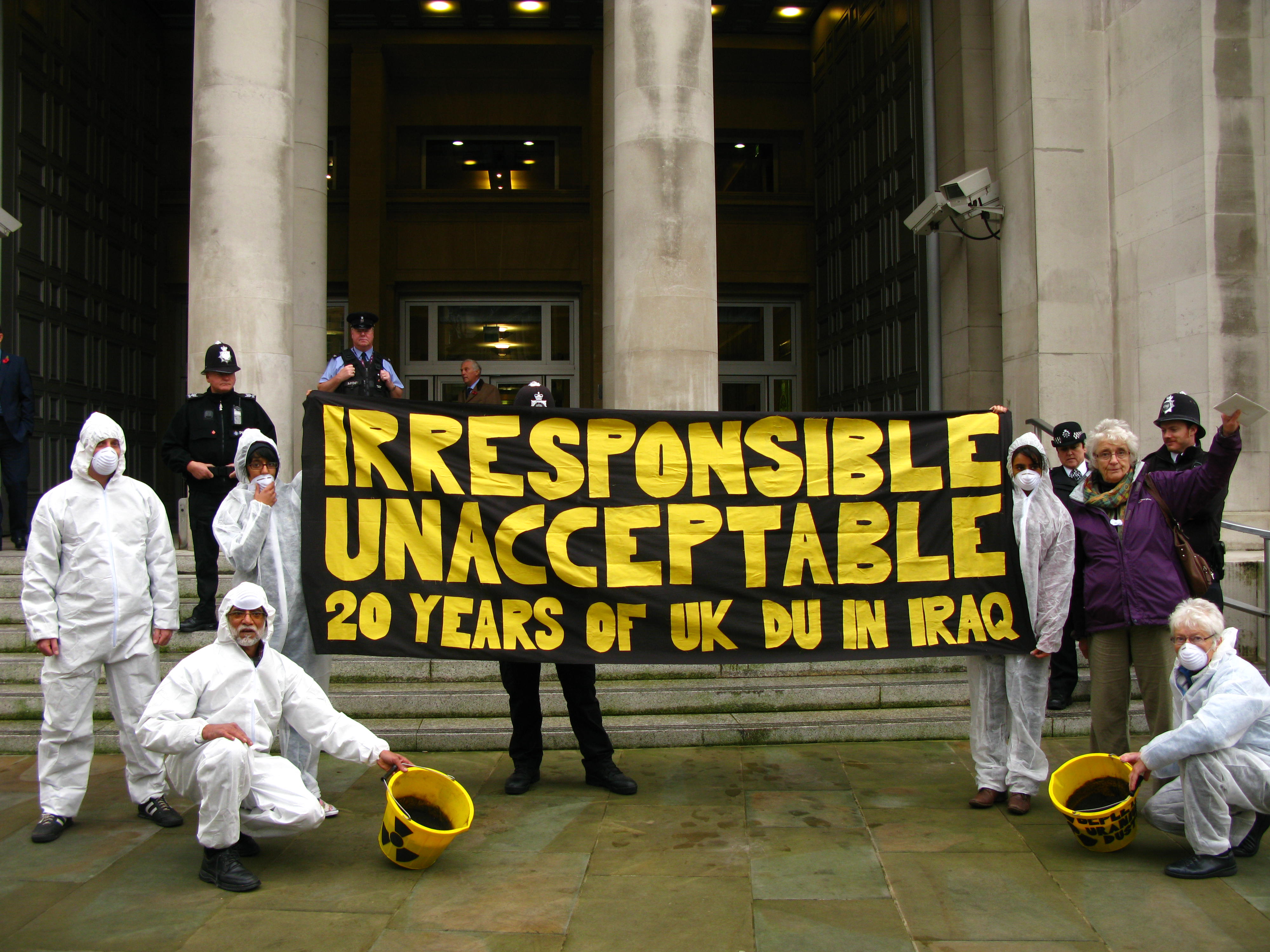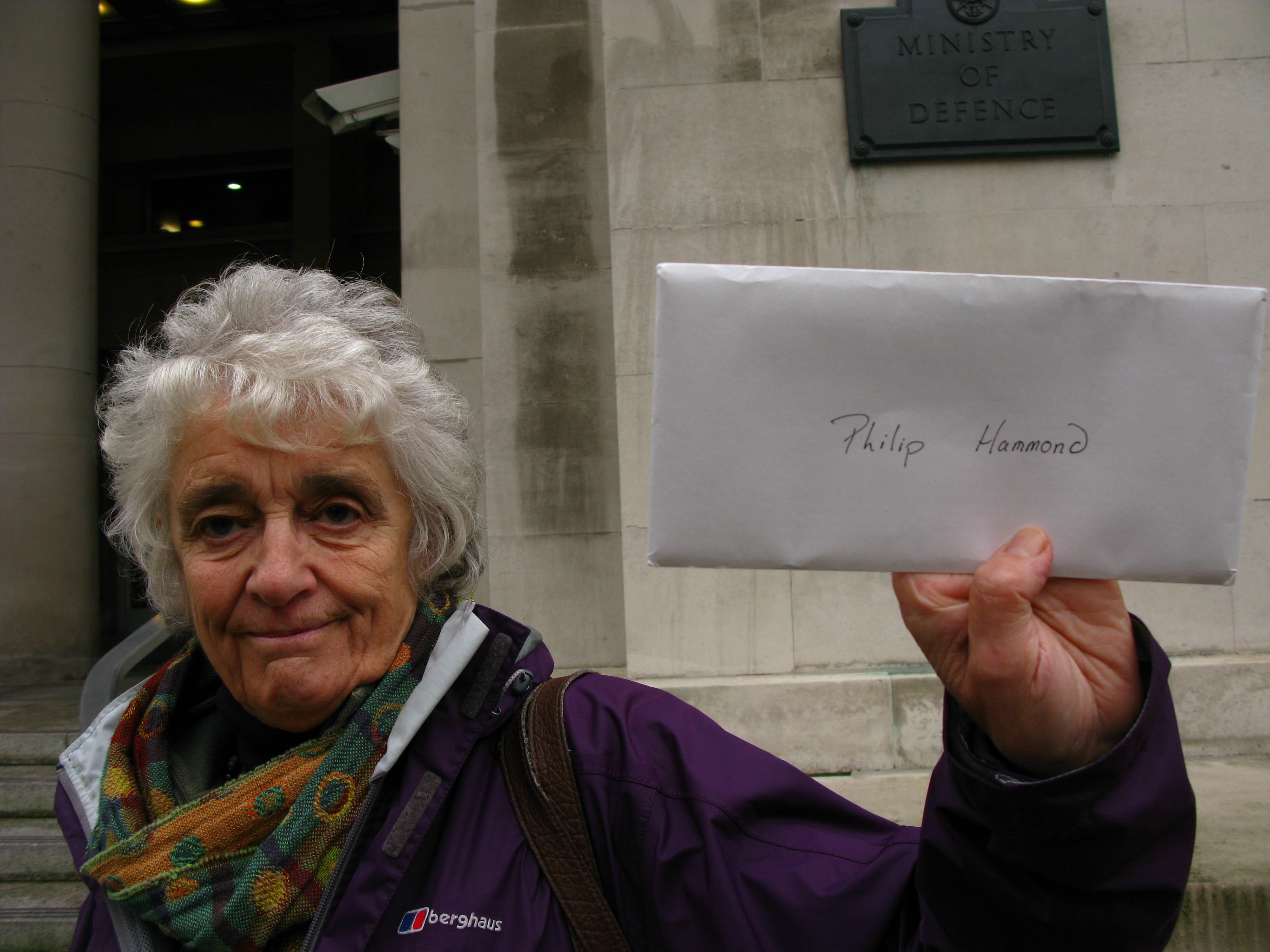On 8 November campaigners dumped 2.3 tonnes of imitation “depleted uranium” (DU) dust on the steps of the Ministry of Defence (MoD) in London. The reasons were twofold – to remind the MoD of their responsibility for contaminating areas of Iraq and Kuwait during the 1991 and 2003 conflicts and to cancel plans to extend the life of the UK’s last remaining DU round, the inaptly named CHARM3.
Along with the “DU dust”, campaigners delivered a letter to new Defence Secretary Philip Hammond, signed by eight organisations, including the Campaign Against Depleted Uranium (CADU), Campaign for Nuclear Disarmament (CND), Pax Christi, and Campaign Against Arms Trade (CAAT), and award-winning film-maker and journalist John Pilger. The letter condemns the use of DU, asks the MoD to publicly recognise the risks from DU weapons and calls for a stop to the CHARM3 extension programme.
The action was part of a global event marking the International Day of Action on Depleted Uranium, and the UN International Day for Preventing the Exploitation of the Environment in War and Armed Conflict.CHARM3 – not at all charming
CHARM3 is the last UK munition to contain the increasingly controversial DU. When DU munitions hit hard targets an uncontrolled release of DU dust occurs. If inhaled or ingested, this dust has the potential to cause cancer. In areas that DU has been used, most notably in Iraq, doctors have reported a substantial increase in the rates of cancers and birth defects within the population.
CADU contends that it is completely irresponsible for the MoD to use weapons that leave toxic remnants that put the health of civilians at risk, particularly given that these weapons would not be acceptable to use within the UK according to our own environmental protection regulations. They urge Philip Hammond to see sense and remove this toxic weapons from the UK arsenal.
DU is increasingly seen as a Cold War relic, developed out of fear of a Soviet tank invasion. Yet the Soviet threat is outdated and radioactive and chemically toxic weapons are particularly inappropriate for contemporary humanitarian focused operations. Unsuprisingly, international opposition to DU development and use continues to grow.
An international ban of DU munitions
It is increasingly likely that DU munitions will be subject to an international ban. DU weapons have been condemned by four resolutions in the European Parliament, including a landslide resolution in 2008, which called for a moratorium on DUs use and efforts toward a global ban. DU weapons have been the focus of three resolutions in the United Nations General Assembly, and are the subject of domestic bans in Costa Rica and Belgium.
The UK could play a leading role in banning DU yet this is not happening because the MoD wants to continue DU development and use. The propellant charge for the CHARM3 rounds will expire in 2013 and the MoD is developing a Life Extension Programme (LEP) to enable their use beyond 2013. The MoD admits that DU weapons are not “safe” but continues to incorrectly claim that DU poses no risk in order to justify its continued use.
Concerned MPs have submitted an Early Day Motion to parliament on the CHARM3 renewal. So far only a small number have signed but many more are likely to do so. CADU urges supporters to contact their MP to inform them of the situation and to ask them to sign the EDM 2318 on Depleted Uranium Weapons Removal.


